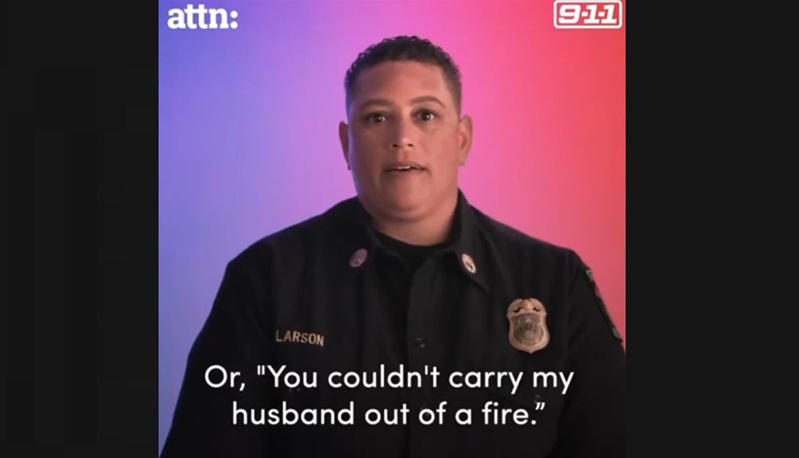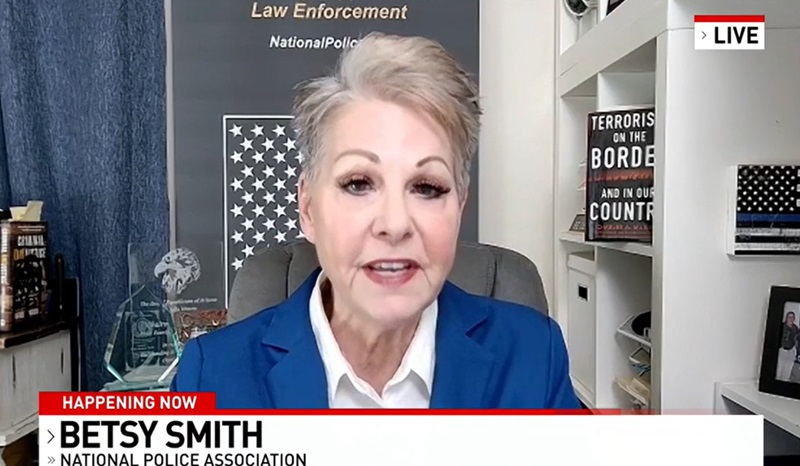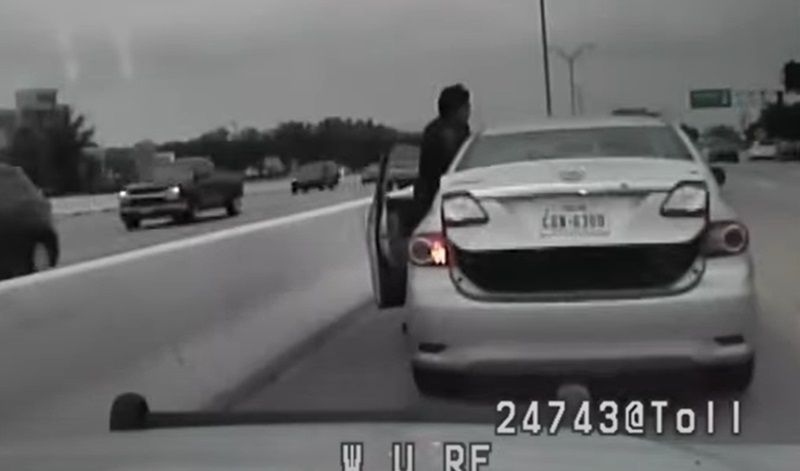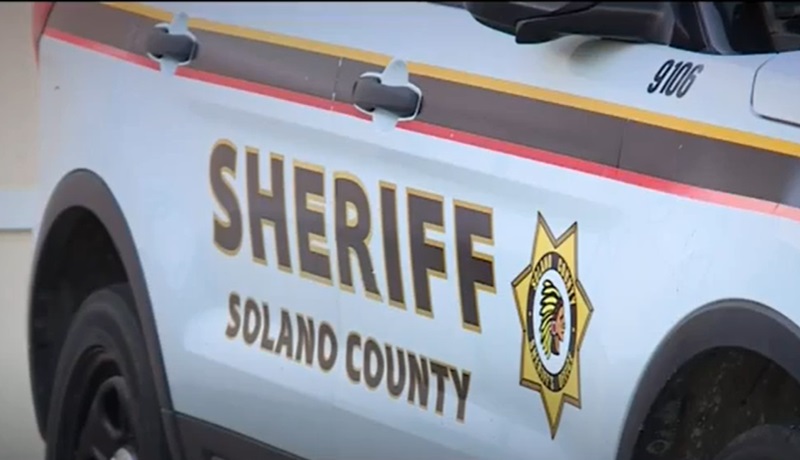
Fentanyl is a widely used word lately, stemming from the drug’s highly fatal potency ending the lives of users. While our still-unsecured southern border serves as a facilitator of fentanyl, the Volusia County, Florida, sheriff’s office Overdose Task Force (ODTF) combats the poisons that have made it inland, steadily going after the dealers who peddle the poison.
Recently, undercover deputies assigned to the sheriff’s office ODTF slapped cuffs on a young guy after determining he dealt fentanyl pills to a young woman who died after ingestion of the poisonous stuff.
Per a VCSO bulletin, “Less than 48 hours after a young woman died of a suspected drug overdose in Deltona, the VSO Overdose Task Force (ODTF) identified the dealer, took him into custody after an undercover purchase, and recovered fentanyl pills pressed to imitate Oxycodone.
“The ODTF investigation began Monday after the 23-year-old woman died at the hospital in the early-morning hours. Detectives quickly identified a dealer in DeLand, 23-year-old Nathan LeBeau (DOB 6/17/2000).”
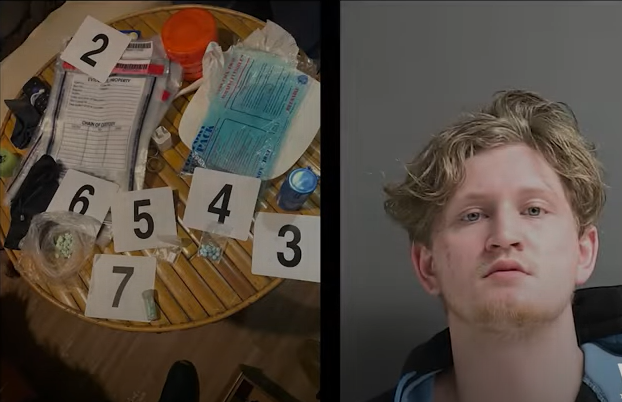
(Screenshot courtesy of the Volusia County Sheriff’s Office.)
Although it doesn’t indicate how undercover deputies learned who the drug dealer was in this victim’s overdose death, such vital information typically comes from someone who knew the decedent and from whom they “copped” narcotics.
Surely, in the case of the death of a loved one, people in the know of illicit activity that contributed to the demise are compelled to reveal what they know: sources, locations, dealer’s vehicle(s), and street monikers. With that, undercover narcotics investigators commence their case…
If not via someone in the know providing intel to investigators, another theory may have made the case (which we will get to in a moment).
“After setting up an undercover purchase from LeBeau, detectives with the ODTF and East and West Volusia Narcotics Task Forces arrested him Tuesday night and recovered several pills identified as Oxycodone, which tested positive for fentanyl,” a Volusia County Sheriff’s Office (VCSO) spokesperson reported.
As the undercover investigation comes together, cemented by probable cause, deputies draw up affidavits to secure a warrant endorsed by a judge, after petitioning law enforcement officers raise a hand and swear under oath that the contained information is “true and correct.”
Certainly, judges scour the affidavits soliciting warrant(s), may pose questions for clarification, and ordinarily bid deputies adieu with something like “Good luck…be safe!”
The increased perils of working as undercover operatives, often resembling the criminal profile and the salty language, do not always mean the UC is accepted. Given undercover cops craftily try to gain confidence and rapport with very violent people who are usually armed and unhesitant to protect their drug-dealing enterprise, suspicions arise…creating intense vibes and cat-and-mouse chess moves.
Have you heard of going “deep under”?
Although all undercover cops (UCs) working narcotics investigations is a major feat in police work, some UCs infiltrate so deeply that they are unseen for a spell, unheard until a blip of safe opportunity is deemed possible, clandestinely reporting that they are still alive, conveying updates to law enforcement superiors who nail-bite (literally and metaphorically) from day to day.
It is an obscure element of policing that isn’t often talked about out of necessity for confidentiality and officer safety—scant physical contacts (check-ins) are potential threads for cartel-like figures to seize upon and decidedly assassinate a suspected undercover cop.
UCs don those classic bank robber masks (eyes and moth cutouts), sometimes have their faces blurred, and blot out unique identifiers (scars, tattoos) when depicted in photos or footage.
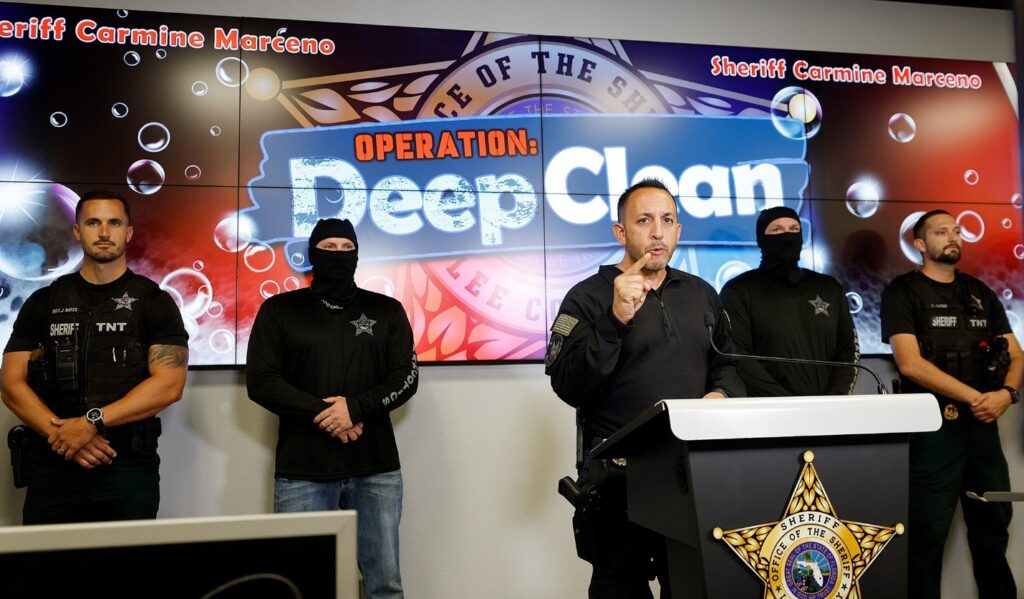
(Photo courtesy of the Lee County Sheriff’s Office.)
During my police career, I’ve never known a colleague whose persona was unchanged by working “deep under.” Given the law enforcement community’s slow road to heed officer wellness, anxiety is prevalent in all the manifestations of stress-inducing police work.
Just like our nation’s brave, forward-forging military personnel who carry heavy crosses due to combat and myriad battles rife with scars, so too are America’s courageous cops changed by the tragedies they witness and the high-risk journeys undertaken by going undercover.
As a UC once intimated to me, “I morph into a phantom to catch phantoms.” He didn’t smile. Stoically, he walked away, his gaze scanning like a submarine’s periscope, its reticle a stark reminder that antagonists may have him square in theirs.
The UC deputies in Volusia County worked their case until they nabbed their once-phantom whom they identified and arrested, saying, “LeBeau was charged with trafficking in fentanyl, possession of fentanyl with intent to sell, use of a 2-way communication device to commit a felony, possession of alprazolam and psilocybin with intent to sell, and possession of narcotic paraphernalia. He is being held at the Volusia County Branch Jail with no bond as of this writing.”
Analyzing the charges VCSO’s ODTF deputies imposed on the criminal report affidavit (CRA), “Use of a two-way communication device to commit a felony” is a Florida statute that either led to the drug dealer’s identity or bolstered what people familiar with the decedent shared.
As a matter of course, LEOs consider the communications made by/with any fatality resulting from a criminal nature. Hence, the decedent’s cell phone and/or computer devices are searched and used as probable cause features to obtain a warrant as well as evidence for prosecutorial merit.
In the minds of ODTF members, this amounts to another poison peddler down…with innumerable more to come…thanks to federal pols sitting on their hands while the southern border is a tsunami-flow of fatal fentanyl increasingly detected by medical examiners at morgues.



